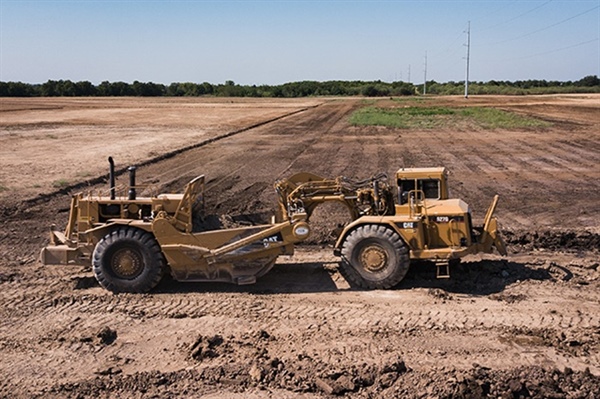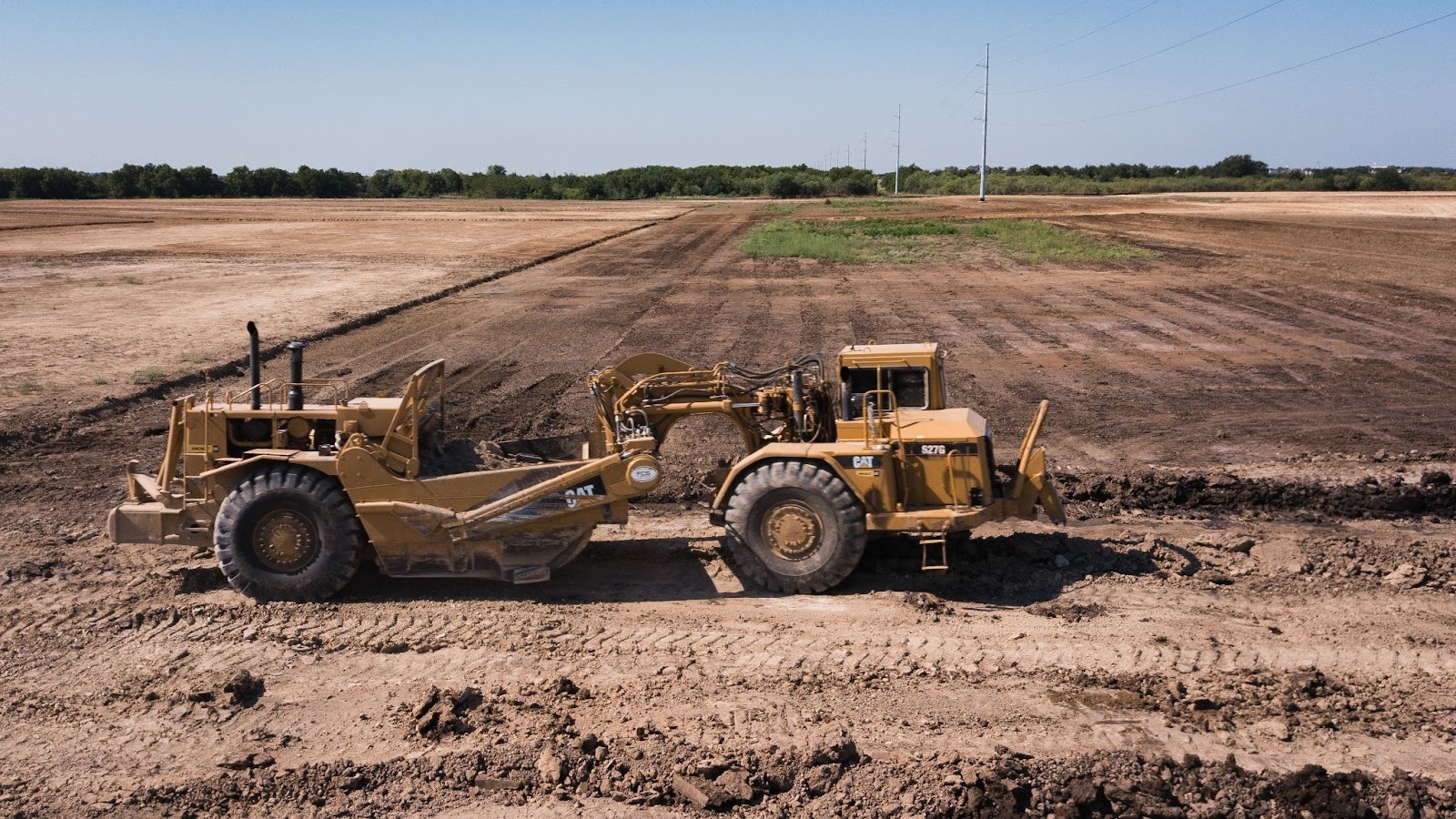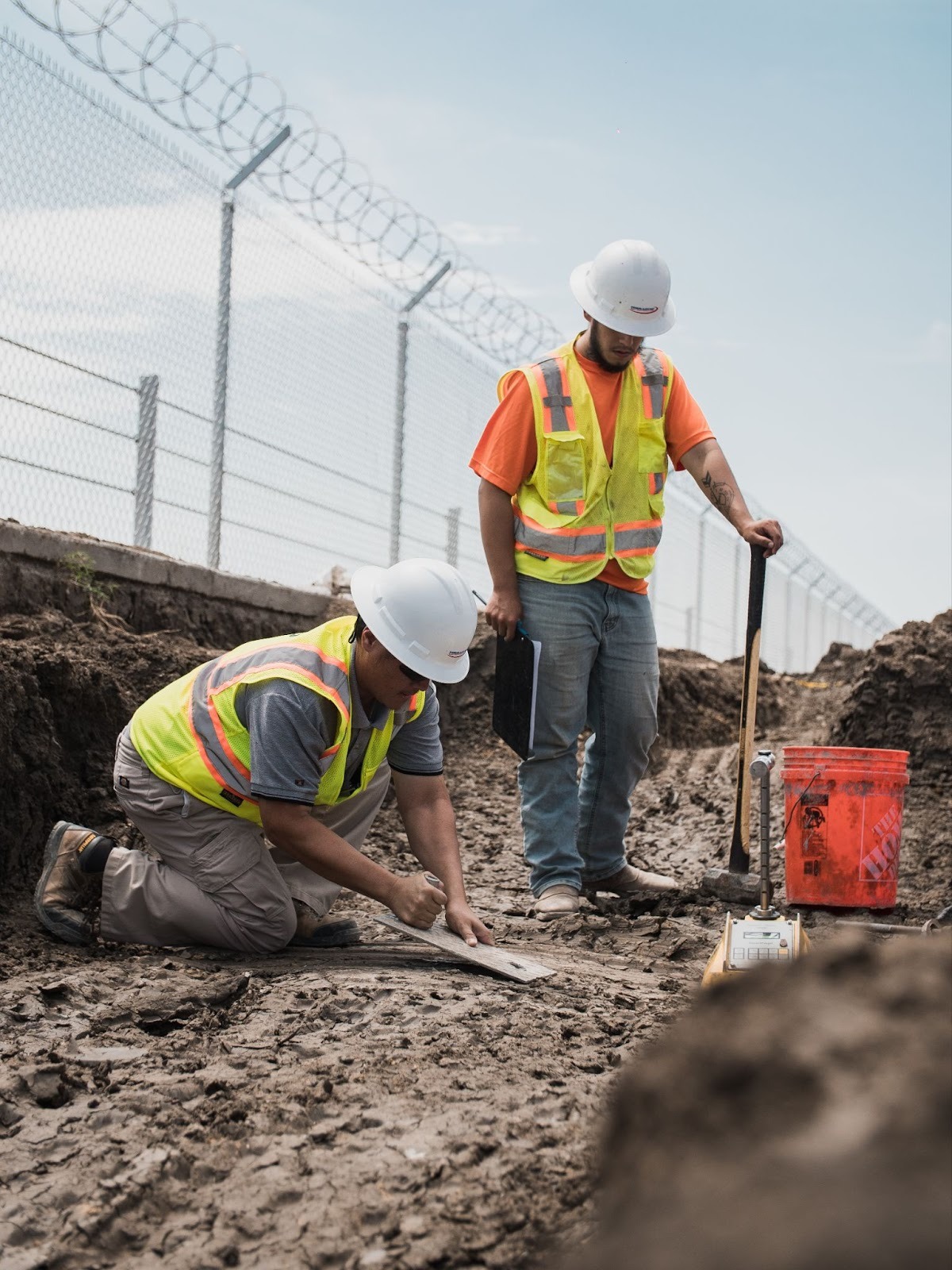Exploring the Key Components of Geotechnical Soil Testing

The success of any construction project is built from the ground up. Before the first concrete slab is poured or the steel beam is erected, understanding the earth beneath the site is paramount.
Geotechnical soil testing is the scientific process that provides this critical insight, evaluating soil properties to ensure a safe, stable, and lasting structure. Without it, developers risk foundation failure, structural damage, and costly project delays.
Accurate soil analysis provides the data needed for sound engineering decisions. At Terradyne, we recognize that your project timeline depends on reliable and efficient geotechnical services. With our state-of-the-art, in-house laboratory and sophisticated on-site equipment, we deliver the precise data you need to build with confidence.
Our process provides site-specific design recommendations and construction criteria, turning subsurface uncertainties into a solid foundation for success.
The Purpose of Geotechnical Soil Testing
Geotechnical soil testing is a fundamental component of pre-construction due diligence. It involves collecting soil samples from a project site and analyzing them to determine their physical and engineering characteristics.
The goal is to create a detailed profile of subsurface conditions that directly influences foundation design, site preparation methods, and even the selection of construction materials.

Imagine beginning excavation for a multi-story commercial building, only to discover that the soil has poor load-bearing capacity. This unexpected finding could force a complete redesign of the foundation, leading to significant budget overruns and schedule disruptions.
Thorough soil testing prevents such scenarios by identifying potential challenges early, allowing engineers to design appropriate solutions before construction begins.
Key Components of a Soil Investigation
A comprehensive geotechnical investigation is more than just digging a hole; it is a multi-faceted analysis that examines several key soil properties.
Each test provides a piece of the puzzle, contributing to a complete picture of the site’s suitability for development.
Soil Composition Analysis
Understanding what the soil is made of is the first step.
Soil is a mixture of minerals, organic matter, gases, liquids, and organisms. Its composition determines how it will behave under different conditions.
-
Sieve Analysis: This test determines the grain-size distribution of soil. Samples are passed through a series of sieves with progressively smaller mesh sizes. The results help classify soil as sand, silt, clay, or gravel, which is crucial for predicting its engineering behavior, including drainage and compaction characteristics.
-
Atterberg Limits: This series of tests is performed on fine-grained soils, like clay and silt, to determine their moisture content at different plasticity states (liquid, plastic, and solid). These limits are essential for assessing soil stability and its potential to shrink or swell with changes in moisture.
Strength & Stability Testing
A primary concern for any structure is whether the ground can support its weight. Strength tests measure the soil's ability to withstand stress and resist deformation, which is vital for designing stable foundations.
-
Proctor Compaction Test: This laboratory test establishes the maximum density achievable for a specific soil type at an optimal moisture content. The results provide a benchmark for on-site compaction efforts, ensuring the ground is properly prepared to support structures without settling over time.
-
Unconfined Compressive Strength Test: This test measures the strength of cohesive soils, such as clay. A cylindrical soil sample is subjected to increasing pressure until it fails, providing engineers with data to calculate its load-bearing capacity.
-
Triaxial Shear Test: Considered one of the most reliable methods for determining a soil's shear strength, this test simulates the complex stress conditions the soil will experience beneath a foundation. It provides precise data for designing everything from shallow footings to deep piles and retaining walls.

Moisture Content & Permeability Evaluation
Water is a critical factor in soil stability. Too much or too little can dramatically alter its properties, leading to expansion, settlement, or loss of strength.
-
Moisture Content Analysis: This straightforward but vital test determines the amount of water present in a soil sample. It is a key parameter used in nearly all other geotechnical calculations and is essential for assessing soil compaction and stability.
-
Permeability Test: This test measures how readily water flows through the soil. Low permeability (as in dense clay) can lead to poor drainage and waterlogged conditions, while high permeability (as in sand) can lead to erosion. The results inform the design of drainage systems and foundations.
The Terradyne Advantage: Speed, Precision, & Expertise
In construction, time is money. Waiting weeks or months for a soil report can bring a project to a standstill. Terradyne eliminates this bottleneck with our advanced in-house laboratory and on-site testing capabilities.
Our streamlined process allows us to turn around comprehensive soil reports in as little as 2-3 weeks, providing you with the actionable data needed to keep your project moving forward.
Our investment in sophisticated equipment enables us to perform a wide range of tests with exceptional accuracy, both in the controlled environment of our lab and directly on your project site. This dual capability allows for real-time analysis and immediate adjustments during site work, optimizing efficiency and minimizing delays.
-
For example, our field technicians can use portable testing devices to verify compaction levels as earthwork is being completed, ensuring that engineering specifications are met without interrupting the construction schedule.
The foundational work our certified team provides is integral to the success of countless projects. We deliver solution-driven results backed by 30 years of trusted ingenuity and professionalism, helping you build with certainty and design with accuracy.
Build Your Project on a Foundation of Confidence
Geotechnical soil testing is not an expense — it is an investment in the safety, stability, and long-term viability of your project. By identifying subsurface risks and providing precise engineering data, it lays the groundwork for successful development.
Partnering with a reliable geotechnical firm ensures that this critical phase is handled with the expertise and efficiency your project deserves. With Terradyne, you get more than just a soil report; you get a partner dedicated to your project's success. Our rapid turnaround times, advanced testing capabilities, and experienced team provide the critical insights you need to mitigate risk and build with confidence.
Contact Terradyne today to discuss your geotechnical soil testing needs and discover how our expert solutions can support your next project.